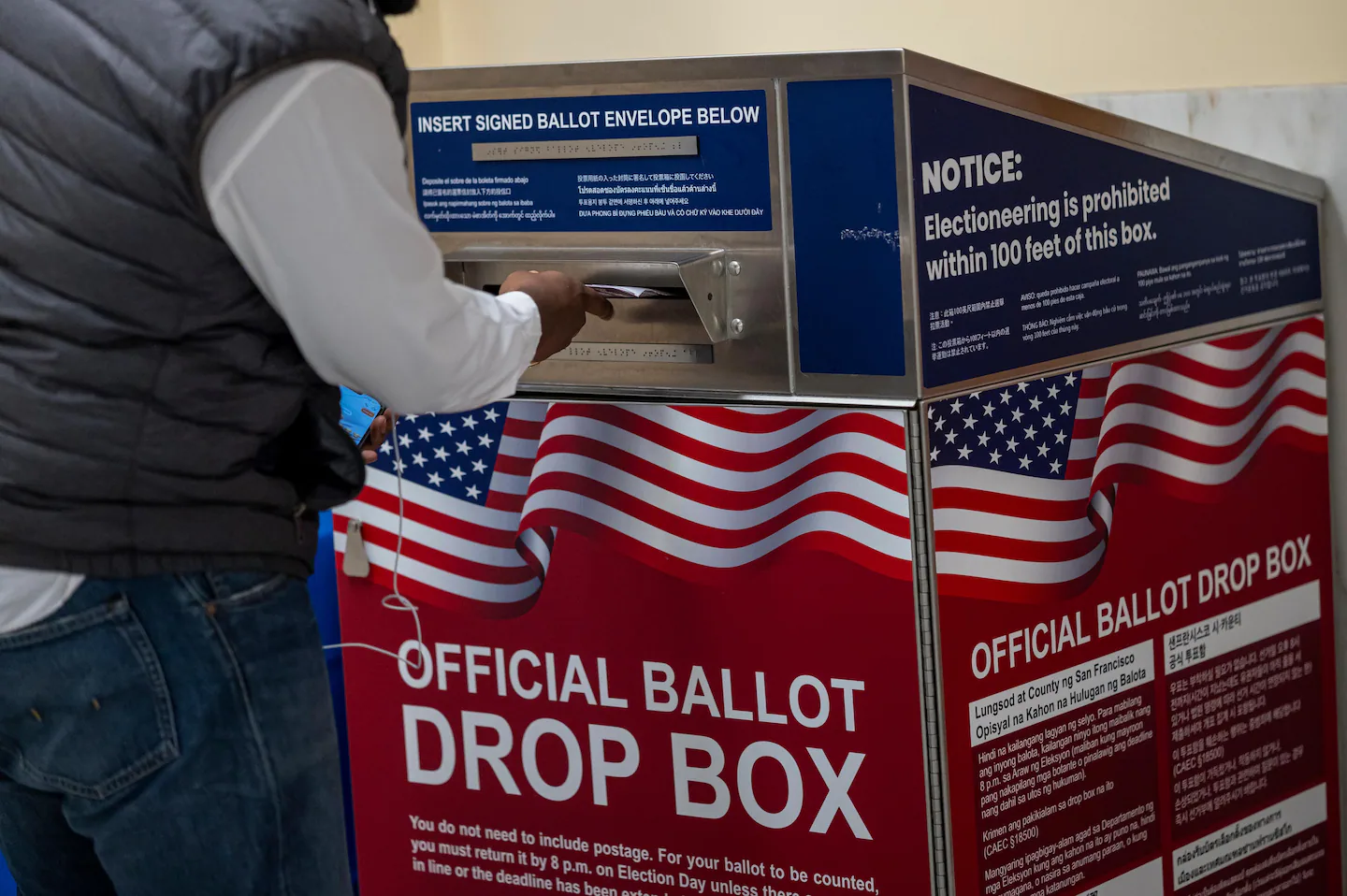Copyright The Boston Globe

WASHINGTON — The Supreme Court said on Monday that it would hear a challenge to Mississippi’s counting of mail-in ballots received after Election Day, a case that could upend mail-in ballot rules in dozens of states, creating chaos leading up to the 2026 elections. The case, a potential blockbuster that asks the justices to determine the meaning of “Election Day,” adds another high-profile fight over elections and voting rights to the court’s term. Already, the court’s docket includes a lawsuit over who can sue to challenge Illinois’s mail-in ballot rules and a battle over the Louisiana congressional district map that could gut a remaining pillar of the Voting Rights Act. In the case, Watson v. Republican National Committee, Mississippi argued that Congress set only the date by when voters must make their choice, not the date by when ballots must arrive. Mississippi defended its five-day grace period, which is similar to ones in place in many other states, as allowing elections officials to count ballots that have been mailed by Election Day but arrive a few days after. The challenge to the Mississippi law reflects political fights over the increased use of mail-in ballots, which exploded during the coronavirus pandemic, inciting legal challenges throughout the country. President Trump has railed against the use of mail-in ballots since 2020 and particularly since his defeat in that election, falsely blaming the ballots for his loss. Earlier this year, Trump announced he would lead a movement to eliminate mail-in ballots, although the president does not have the power to unilaterally end the practice, and some Republicans fear that discouraging the use of mail-in ballots would put their voters at a disadvantage. Advertisement In 2024, the Republican National Committee, along with the Mississippi Republican Party and individual voters, challenged Mississippi’s mail-in ballot rules. The challengers argued that Congress had intended that voting take place on a single Election Day and that allowing ballots to arrive days later and still be counted undermined election integrity and the public’s trust in the vote. A federal trial court judge upheld Mississippi’s law, finding that the state met federal requirements for elections because the mail-in ballots had to be postmarked by Election Day. Under the law, no ballots cast or mailed after that day are counted. A three-judge panel on the New Orleans-based 5th US Circuit Court of Appeals, generally viewed as one of the nation’s most conservative appeals courts, sided with the RNC. The appeals court struck down Mississippi’s grace period, which let it count absentee ballots postmarked by Election Day if the ballots arrived up to five business days later. Advertisement The appeals court held that, under federal law, ballots must be cast by voters and received by state officials on Election Day, and that Mississippi’s law conflicted with federal statutes by allowing ballots to be received after Election Day. The court said it was clear that a ballot was “cast” when the government received it. After the appeals court denied a request to rehear the case with the full court, Mississippi asked the Supreme Court to weigh in. In its petition, Mississippi asserted that the appeals court ruling “defies the federal election-day statutes’ plain text.” Lawyers for the state argued that invalidating the law would “have profound and destabilizing nationwide ramifications” because it “would scrap election laws in most states” and would “invite breakneck litigation and threaten electoral chaos.” The challengers argued in a brief to the justices that state laws that allowed ballots to be accepted after Election Day reduced time to resolve post-election disputes and “deprive the electorate of a clear nationwide deadline.” About 30 states and the District of Columbia accept some ballots that are mailed by Election Day but received later, according to Mississippi’s brief to the court. The grace period differs among the states. So far this term, the justices have heard arguments in two other crucial elections-related cases. In early October, the court grappled with a different case also dealing with mail-in ballots. Representative Mike Bost, a six-term Republican who represents a district in downstate Illinois, sued over a state law that allows ballots postmarked by Election Day to be counted if they are received up to 14 days later. The argument in Bost v. Illinois State Board of Elections centered on what legal standard candidates must meet to prove they have been harmed by an elections regulation and be allowed to sue over it. Advertisement Later that month, the justices heard a challenge to Louisiana’s congressional voting map. A group of white voters had sued to block the map, arguing that it was an unconstitutional racial gerrymander. If the justices side with the challengers in Louisiana v. Callais, they could weaken an important provision of the Voting Rights Act, a landmark civil rights law, by curtailing the ability of lawmakers to use race as a factor in drawing voting maps. Republican state legislatures could use such a ruling to eliminate around a dozen Democratic-held House districts across the South, according to a New York Times analysis. Decisions in all of these cases are expected by the end of June or early July. This article originally appeared in The New York Times.



